By Kim McDarison
By all counts, Capt. Scott Robinson Alwin, a soldier during the Vietnam War and a preacher’s son growing up in Fort Atkinson, was a man of strong faith and a hero.
Recently he also was remembered as a man who admired actor Errol Flynn and was something of an adventurer and a daredevil.
Though at the time of his death, in 1976, his address was listed in Marathon County, he spent many of his formative years in Fort Atkinson.
During an emotional ceremony held at the William S. Middleton Memorial Veterans Hospital in Madison Friday and attended by friends and family, Alwin was inducted into the hospital’s Hall of Heroes, where his likeness, like the likenesses of those who were placed there before him, will serve to inspire future generations.
In the hall, the soldiers’ heroic deeds and the meaning of Memorial Day are powerfully on display.
“While all the veterans that come to the William S. Middleton Memorial Veteran’s Hospital have demonstrated sacrifice and courage on behalf of our country, there are some who stand out for especially heroic actions during their service. The Hall of Heroes is where we honor those brave veterans,” a printed program for the ceremony stated.
Stories told by friends and loved ones during the ceremony assured all who were in attendance that Alwin was deserving of that distinction.
Who was Scott Alwin?
Alwin is best known for his prowess and courage as a helicopter gunship pilot during the Vietnam War. He served in Vietnam between 1967 and 1972.
His life ended in a car accident — a collision with a drunken driver — while he was traveled on military business between Fort Benning, Georgia, and Washington, D.C. He was 31.
During the ceremony, two of his sisters, Penelope Kleinhans-Alwin and Pamela Fullerton, remembered him as a youth. He was part of a family with 16 siblings, the children of Walter and JoAnn Alwin. They were known locally as the “preacher’s kids,” and he was the oldest among them, the sisters recalled, and while Fullerton noted that the family moved multiple times before arriving in Fort Atkinson, the stories both sisters told about Alwin’s formative years focused on Milwaukee and Fort Atkinson.
Walter, a native of Milwaukee, was a pastor of a number of rural churches, according to his obituary, but changed professions, finding work as a social worker, to help support his large family. In 1956, the family purchased and moved into the Hoard mansion on Merchants Avenue.
In 1973, Walter and JoAnn moved to Marathon County. The couple kept a studio apartment in rural Whitewater at the home of a daughter until 2007.
During the induction ceremony, hospital storyteller Thor Ringler also shared stories about Alwin, several of which were related to him by Alwin’s sisters for inclusion within a narrative he wrote titled: “My Life, My Story.”
Ringler shared a recollection of Kleinhans-Alwin’s, who recalled that her father was a U.S. Army Air Corps flight instructor during World War II. A pastime spent with her siblings and father included visiting the runway, before modern-day security measures were put in place, at what was then called General Mitchell Field in Milwaukee, where the family would share a picnic of chocolate milk and crackers while watching the planes take off. Her brother, Scott, she said, knew he wanted to be a pilot by the time he was six.
Another story related through Ringler portrayed Alwin’s sense of adventure.
Growing up in Fort Atkinson, at the age of 12, Fullerton told Ringler, she and her brother, after she expressed an interest in African adventures surrounding the Nile River, built a raft of “scavengered lumber” and went looking for the source of the Rock River.
The siblings pulled their raft upstream for about seven hours, Fullerton said, and then, having arrived some five miles from where they started, the raft “disintegrated in a swamp.” While both were disappointed in how the adventure ended, she said, as they walked home, Scott said: “Next time, we’re going to try for the source of the real Nile!”
Taking her turn at the podium, Kleinhans-Alwin said when Alwin was 16, in 1961, he was exposed to the now famous words spoken by President John F. Kennedy: “Ask not what your country can do for you, ask what you can do for your country.”
Born in 1944 and during World War II, Alwin was influenced by heroic words and deeds, and movies glamorizing heroic deeds with heroes portrayed by the likes of Errol Flynn, whom, Kleinhans-Alwin said, was considered dashing and brave.
Kleinhans-Alwin said her sister, Pamela, who stood beside her at the podium as she talked, recalled their brother talking about wanting to be a hero.
Recollections from Vietnam
Alwin was in his early 20s when he entered the war.
While he had earned and accepted an appointment in the Air Force, he later resigned, opting instead to rejoin the armed forces through enlistment in the Army after the conflict in Vietnam had escalated.
Speaking with two soldiers with whom Alwin served, Ringler brought depth to what Alwin was like in wartime.
To learn about Alwin, Ringler said, he spoke with a fellow pilot in Vietnam, Ed Strazzini, and Alwin’s crew chief, Frans Vanderbroek.
Through stories related to Ringler by Strazzini, those in attendance learned that both he and Alwin arrived in Vietnam in 1967, and they were both assigned to the 68th Assault Helicopter Company. Both began flying troop-carrying helicopters called “slicks.” Strazzini described the pilot’s job as “hard work,” flying long days and some nights. They flew in all kinds of weather and under all kinds of conditions, and sometimes encountered hostile conditions on the ground.
Strazzini transferred to flying attack helicopters. The mission was to stay with the troops even after the slicks departed and support the troops on the ground.
Strazzini said he would talk with Alwin about the missions he was flying. Alwin would sometimes hear secondhand stories, Strazzini reported, and he would “get on me for something that he heard we had done.”
To set the record straight, Strazzini invited Alwin on a mission.
After the experience, Strazzini said, Alwin decided to pilot a gunship himself.
Vandenbroek, too, was assigned to the 68th Assault Helicopter Company, but as a mechanic. In the summer of 1968, he said, he joined the gunship platoon and became a crew chief. His job was to look after the helicopter, he said.
He also manned, along with a gunner, an M60 machine gun. He described a symbiotic relationship between the pilot and the crew: the crew is tasked with keeping everyone alive while the pilots are charged with getting everyone home safely.
Vandenbroek described Alwin as “sort of an enigma. He was very quiet, almost sad when he walked up. But when he got into the helicopter and started flying, he totally changed. He became so determined, so committed, that it was startling to see.”
As a pilot, Vandenbroek said, Alwin was among the most fearless he flew with.
At the end of their tour, Strazzini said, both he and Alwin were given orders to go to West Germany, but two weeks before they were going to leave, Alwin said he was going to stay. “I’ve extended,” he told Strazzini.
Strazzini said he believed Alwin stayed for the mission, but also because of an interest he’d taken in a Vietnamese employee at the officer’s club. It was a woman whom he visited with and looked after, Strazzini said, noting: “He saw himself as her guardian and we kind of laughed about that. But I didn’t realize how deeply he felt for her.”
Said Vanderbroek: “Mr. Alwin had sublime flying skills. His precision with the helicopter was just outstanding. He could set it down without us even knowing that we had landed, but when it came to managing the mission, Mr. Alwin was always looking for trouble. He did not mind getting involved.”
Vanderbroek went on to explain that Alwin didn’t seek out trouble for trouble’s sake, but to help people.
He then told the story of his last day in Vietnam. It was March 23, 1969.
“We were patrolling an area and Scott was the aircraft commander. I spotted some North Vietnamese soldiers running from one hut to another and got on the intercom.” As Vanderbroek alerted his pilot to activity below, Scott “whipped the helicopter around.” He radioed the battalion commander that he was going in, saying “Mustang 17 going hot, rolling in!”
Next, Vanderbroek said, they attacked a hut, with Alwin firing rockets and working to maintain a chosen angle for as long as possible so he could hit his target.
“I’m leaning out of the cabin with my machine gun pointing forward and I’m pumping bullets into this target. Scott pulls up at the last second and the next thing you know, we’re going down,” Venderbroek said.
The helicopter “hit belly first, skipped like a stone, flipped over, and then all hell broke loose. It completely came apart,” he said.
Alwin, the co-pilot and the gunner staggered from the wreck, Venderbroek said, adding that he was thrown from the helicopter. At the field hospital, he was treated for a “badly broken arm.”
An hour and a half after the crash, he said, Alwin came to make sure he was alright. That was the last time he saw him, Vanderbroek said.
In 1970, Strazzini said, he came back to Vietnam, but was in the northern part of the country and not able to visit Alwin. He tried to call him, he said, but he was told he and his wife had gone back to the states.
In 1976, he said, he was back in Virginia. It was Christmastime and he received a card postmarked Fort Atkinson, Wis. When he opened the card, he said, he learned from Alwin’s wife, Teresa, that Alwin had been killed that summer.
The news, he said, “It just took the breath out of me.”
Valor remembered
From the podium, Alwin’s youngest sibling, Sean, told those in attendance that he was 16 when his brother died. Sean Alwin is a resident of Fort Atkinson.
Among the Alwin siblings, Sean is the only one, other than Scott, who served in the military and he has spent the last five years of his medical career working in the Janesville VA Clinic, he said.
Sean Alwin focused on his brother’s legacy, and the lessons he taught about chivalry and courtesy.
He identified three principals, which, he said, he and his brother often discussed:
“First, never ask anyone to do something that you yourself would not do … Second, always take care of subordinates first … (and) third, when in doubt, do your duty.”
About his brother, Scott, Sean said: “He always tried to live up to his ideals. And because of the love I felt for him and understanding the honor he deserved for what he had accomplished, it made me want to live up to those ideals also. In this, and so many other ways, he made me a better man than I would have been. In the end, that is what I honor my big brother for.”
Listed among Scott Alwin’s military achievements are 136 documented Air Medals, Vietnam Republic Medals, Purple Hearts, Bronze Stars, Silver Stars and Distinguished Flying Crosses, all with oak leaf clusters. He is believed to be the most highly decorated American pilot of the Vietnam War.
Among those attending the induction ceremony were Scott Alwin’s wife, Du Thi Duong “Teresa” Alwin-Nguyen — the couple was married in 1969 — and their children, Scott and Heather; grandchildren, several siblings and other family members.
After the ceremony, Alwin-Nguyen remembered her late husband fondly, noting with emotion, that in the days of the Vietnam War, he was her protector.
Alwin is buried in the St. Paul Evangelical Lutheran Cemetery in Berlin, Marathon County.
Engraved upon his headstone is a quote which he is said to have copied into his final journal from the biblical narrative temptation of Christ, which reads: “I hope for nothing. I fear nothing. I am free.”
With Fullerton listed as associate director, a documentary film about Alwin’s life called: “Honor in the Air: Remembering Captain Scott Robinson Alwin,” is being produced by Clear Focus Media, LLC, and is anticipated to be released in 2023 to coincide with the 50th anniversary of the last U.S. troops leaving Vietnam.
Photos by Kim McDarison unless otherwise credited.

Penelope Kleinhans-Alwin, at left, and Pamela Fullerton, sisters of the late Capt. Scott Alwin, formerly of Fort Atkinson, greet attendees in advance of the William S. Middleton Memorial Veterans Hospital Hall of Heroes induction ceremony. The ceremony, unveiling Alwin’s likeness that was added to the Hall of Fame, was attended Friday by about 30 friends and family members.
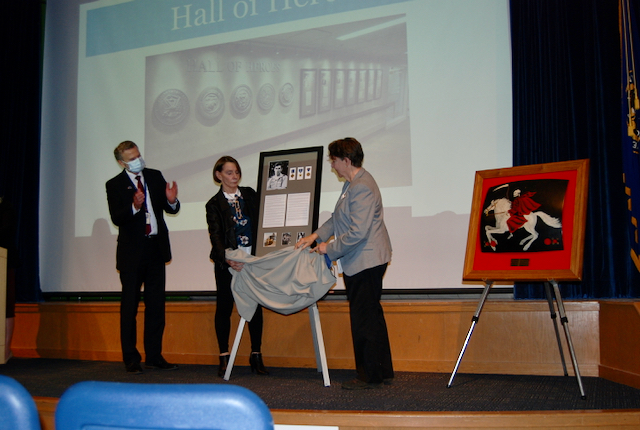
With a member of the William S. Middleton Memorial Veterans Hospital assisting, Penelope Kleinhans-Alwin, center, and Pamela Fullerton, at right, unveil the panel, featuring Scott Alwin’s story and likeness, that is today mounted in the hospital’s Hall of Heroes.
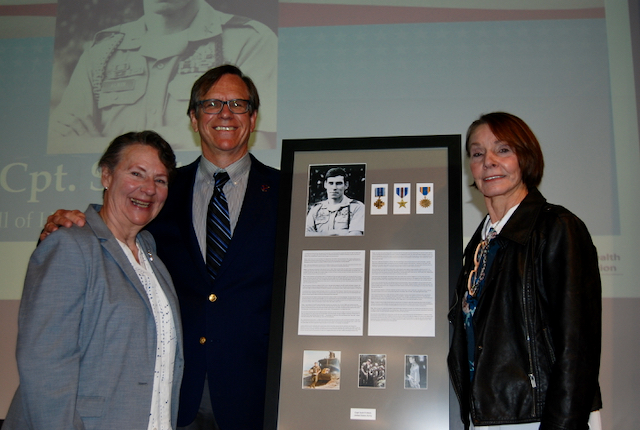
Siblings of Capt. Scott Alwin stand with his likeness. They are Pamela Fullerton, from left, Sean Alwin and Penelope Kleinhans-Alwin.
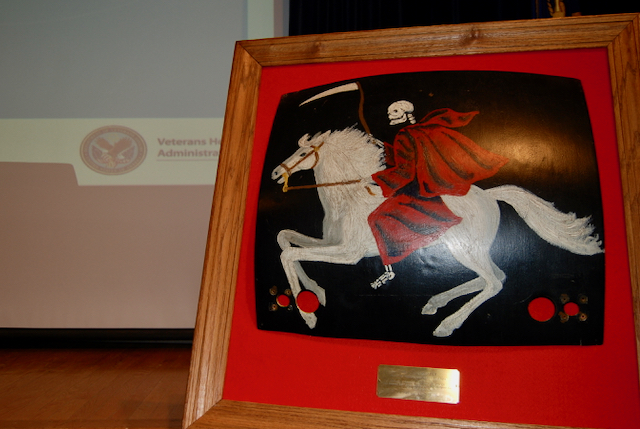
The nose cone from one of the helicopter gunships flown by Scott Alwin is displayed as part of the induction ceremony.
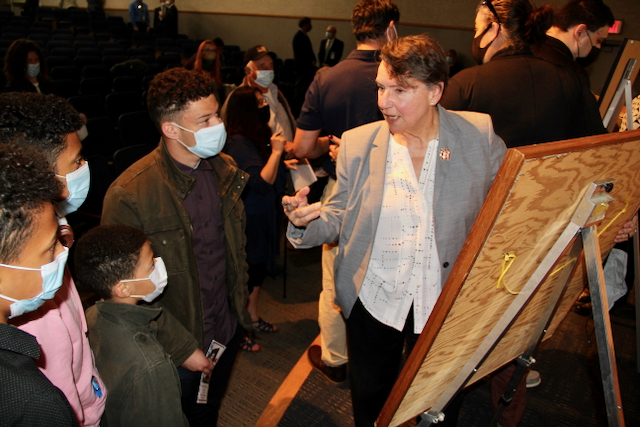
Younger members of Scott Alwin’s family gather around the helicopter nose cone while learning more about Alwin and his time spent in Vietnam from Alwin’s sister Pamela Fullerton.
Chris Spangler photo.

Scott Alwin’s wife, Du Thi Duong “Teresa” Alwin-Nguyen remembers the days spent in Vietnam and time shared with her husband. The couple was married in 1969 and have two children: Scott and Heather.
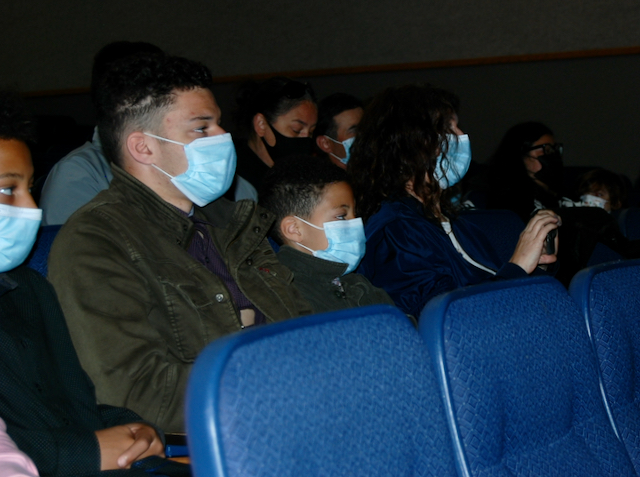
Family members listen intently as stories about Scott Alwin are shared.
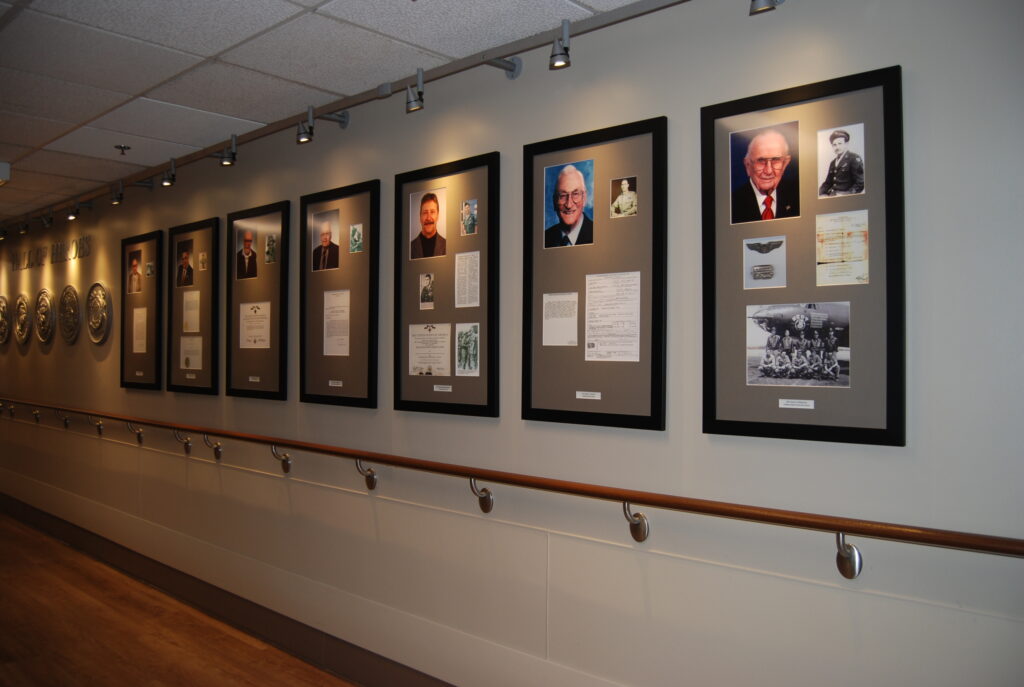
One half of the Hall of Heros at the William S. Middleton Memorial Veterans Hospital in Madison.
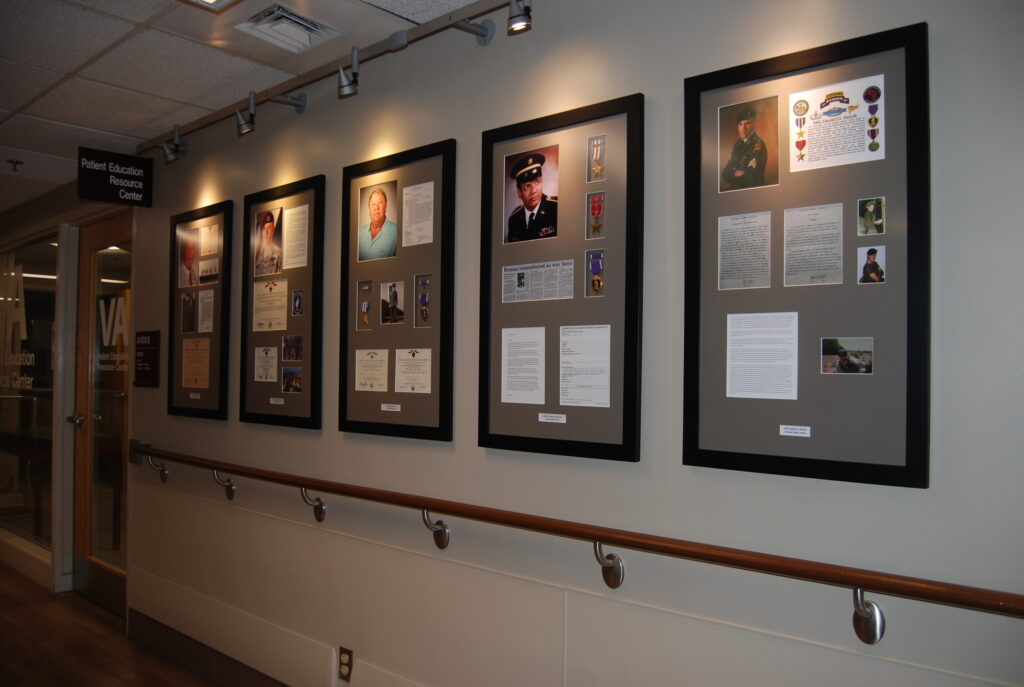
The second half of the Hall of Heroes at the William S. Middleton Memorial Veterans Hospital in Madison.

Family members of the late Capt. Scott Alwin in attendance at the ceremony include Adam Weber, from left, Heather Weber, Teresa Alwin-Nguyen, Samuel Weber, Scott Alwin, III, Jody Alwin and Scott Alwin, Jr.
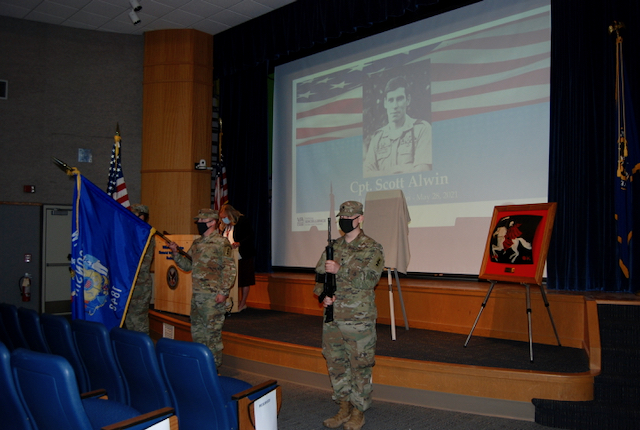
A color guard opens the ceremony.

A hospital employee hangs the image and story of Capt. Scott Alwin in the Hall of Heroes.
Chris Spangler photo.

Capt. Scott Alwin, Aug. 11, 1944 – June 26, 1976.
Photo by Chris Spangler.
This post has already been read 4083 times!